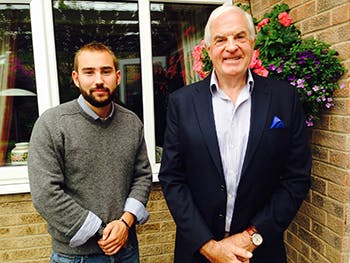SPECIAL REPORTS LAST UPDATED : 31 AUGUST 2016

Recently, Criminology lecturer Jonathan Jackson sat down with former Chief Inspector Stephen Walters. Here is Jonathan's retelling of their meeting:
The setting was a warm summer's evening in residential York. The food consisted of buttered scones and a cup of traditional Yorkshire tea. The conversation; policing over the last four decades. A strange mixture but one that came together to produce an insightful and thought provoking interview with former Chief Inspector Stephen Walters.
It lasted three hours and delved into the often controversial world of both British and transnational policing.
Mr Walters was a veteran of these times, having first served in the Leicestershire constabulary before moving up the M1 to North Yorkshire. His roles have varied from taking command at operational level to heading up the North Yorkshire Force Training and Development Department at Police headquarters. His subject knowledge was vast and his career spanned the most significant periods of British policing. Our discussion examined events such as the miners' strike, race riots, the working conditions of officers, and the Hillsborough disaster.
The interview took us back to a bygone era of policing, and for Mr Walters, a period that should firmly stay in the past. Far from the idealised world of Dickson of Dock Green, a picture was painted of a tough, no-nonsense force, playing by its own rules and agendas.
However, even in these often controversial periods it was clear that there was an innocence to it all. I was transported back before cyber-crime, transnational organised gangs, and the epidemic of illegal drugs. It was clear that the real changes appear to be with crime itself and the police have adapted to tackle these new threats. Police officers have re-examined their dress code, the presence within communities, and allocation of resources. The differences are so significant that the force is unrecognisable from the one that Mr Walters joined.
The enduring quote came in the mid-stages of our discussion, and on the second round of buttered scones.
Mr Walters suggested that to be successful, "Policing must reflect the society in which it serves".
It was evident from our conversation that decades ago, policing was far from accountable to the public they served. However, improvements in the levels of scrutiny and pieces of legislation have created a fairer and equal force.
"Do we get it all right all the time, no we don't. However, on reflection, things are significantly better" said Mr Walters.
I know that the code of silence can often impede a researcher's search for the truth, but our time together was an open and frank discussion regarding over a quarter of a century of service.